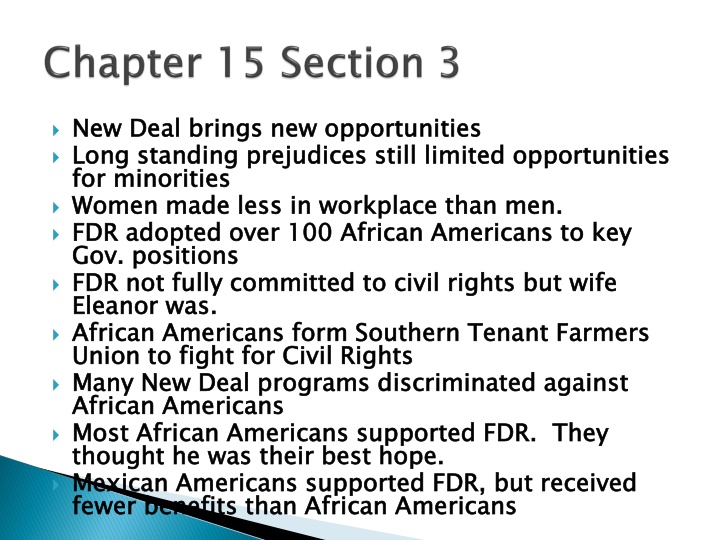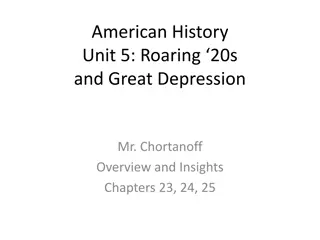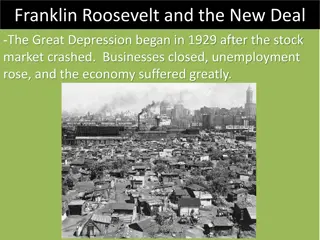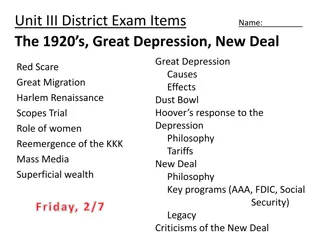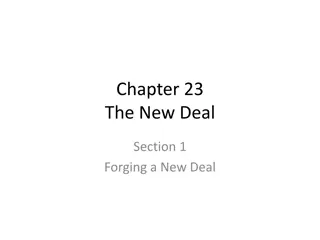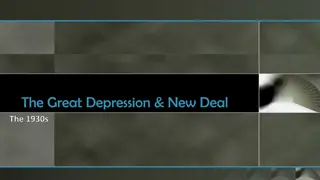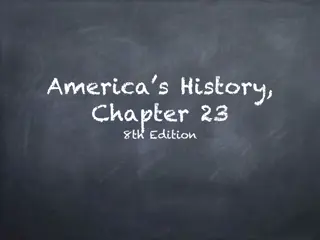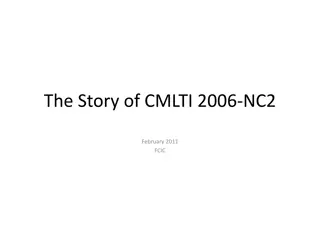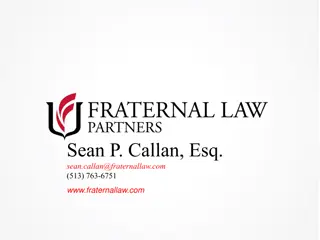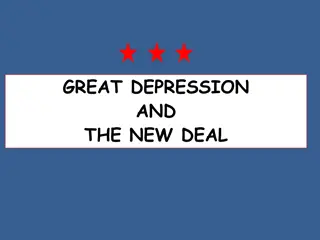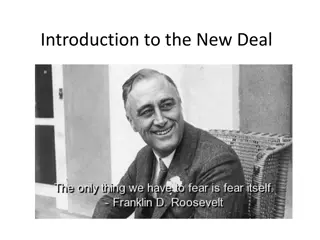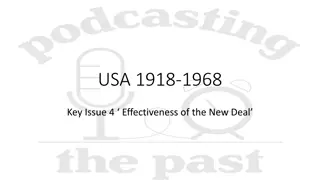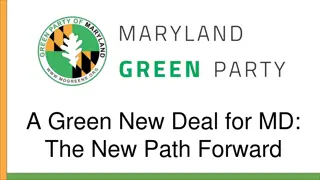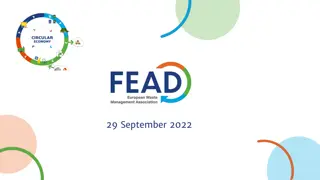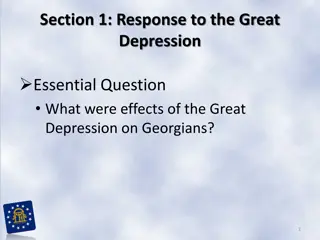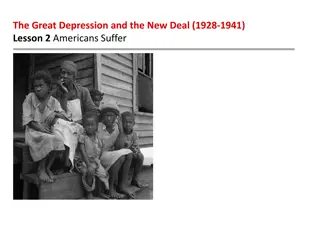New Deal: Opportunities and Challenges
The New Deal brought new opportunities while facing challenges such as limited opportunities for minorities and unequal treatment of women in the workplace. African Americans and Mexican Americans had different experiences with the New Deal, and Native Americans saw restoration of land and autonomy. Labor unions flourished, but there were also disputes. The impact of the New Deal was mixed, with some believing it ended the depression while others felt it didn't do enough to address economic inequalities.
Download Presentation

Please find below an Image/Link to download the presentation.
The content on the website is provided AS IS for your information and personal use only. It may not be sold, licensed, or shared on other websites without obtaining consent from the author.If you encounter any issues during the download, it is possible that the publisher has removed the file from their server.
You are allowed to download the files provided on this website for personal or commercial use, subject to the condition that they are used lawfully. All files are the property of their respective owners.
The content on the website is provided AS IS for your information and personal use only. It may not be sold, licensed, or shared on other websites without obtaining consent from the author.
E N D
Presentation Transcript
New Deal brings new opportunities Long standing prejudices still limited opportunities for minorities Women made less in workplace than men. FDR adopted over 100 African Americans to key Gov. positions FDR not fully committed to civil rights but wife Eleanor was. African Americans form Southern Tenant Farmers Union to fight for Civil Rights Many New Deal programs discriminated against African Americans Most African Americans supported FDR. They thought he was their best hope. Mexican Americans supported FDR, but received fewer benefits than African Americans New Deal brings new opportunities Long standing prejudices still limited opportunities for minorities Women made less in workplace than men. FDR adopted over 100 African Americans to key Gov. positions FDR not fully committed to civil rights but wife Eleanor was. African Americans form Southern Tenant Farmers Union to fight for Civil Rights Many New Deal programs discriminated against African Americans Most African Americans supported FDR. They thought he was their best hope. Mexican Americans supported FDR, but received fewer benefits than African Americans
Most Worked on farms and FDR helped raise wages of farm hands Native Americans received a lot of support from New Deal. Restored Reservation land and gave native Americans autonomy over themselves. Economic, cultural and political control given back to Native Americans. New Deal coalition was mixed made up of mixed groups that were brought together to support the Democratic party Most Worked on farms and FDR helped raise wages of farm hands Native Americans received a lot of support from New Deal. Restored Reservation land and gave native Americans autonomy over themselves. Economic, cultural and political control given back to Native Americans. New Deal coalition was mixed made up of mixed groups that were brought together to support the Democratic party
Labor Unions flourished thanks in part to Wagner Act Labor disputes all peaceful) FDR re Support came from all sorts of groups who benefited from the New Deal Labor Unions flourished thanks in part to Wagner Act Labor disputes workers refused to work (not all peaceful) FDR re- -elected in 1936. Support came from all sorts of groups who benefited from the New Deal workers refused to work (not elected in 1936.
Radio, movies uplifting and light to get people s minds off of depression. Art, music, literature somber and serious Impact of the New Deal By 1937 FDR convinces people that depression is over. Scaled back New Deal due to deficit spending Conservatives (Republicans) believe New Deal made Government too big. Liberals (Democrats) didn t think FDR did enough to equal economic inequalities Radio, movies uplifting and light to get people s minds off of depression. Art, music, literature somber and serious Impact of the New Deal By 1937 FDR convinces people that depression is over. Scaled back New Deal due to deficit spending Conservatives (Republicans) believe New Deal made Government too big. Liberals (Democrats) didn t think FDR did enough to equal economic inequalities
Supporters believe FDR reached a good balance. New Deal gave Fed. Gov. more power Created labor boards, helped and regulated and gave insurance to banks, protected environment, gave people jobs, money, food and shelter. New Deal gave government more control over public welfare starting programs such as Social Security. Supporters believe FDR reached a good balance. New Deal gave Fed. Gov. more power Created labor boards, helped and regulated and gave insurance to banks, protected environment, gave people jobs, money, food and shelter. New Deal gave government more control over public welfare starting programs such as Social Security.
Chapter 15 Sections 3, 4 and 5 Quiz 6.) What happened to workers wages because of FDR? a.) They stayed the same b.) They went up c.) They went down 1.) Describe women s wages in compared to men in the workplace? a.) They made more than men b.) They made the same as men c.) They made less than men 7.) What groups made up the New Deal coalition? a.) All sorts of groups b.) Only native born Americans c.) Just the African Americans 2.) Describe FDR s commitment to Civil Rights? a.) He was very committed b.) His programs showed racism c.) He was not fully committed 3.) Describe what the New Deal did for African Americans? a.) Many programs discriminated against them b.) None of the programs discriminated against them c.) African Americans were firmly against the New Deal 8.) Who brought the New Deal coalition together? a.) Democrats b.) Independents c.) Republicans 9.) Name one act that helped Labor Unions flourish. a.) Work Act b.) Wagner Act c.) New Deal Act 4.) Why did most African Americans support FDR? a.) He was fully committed to civil rights b.) He did not allow New Deal programs to discriminate against them c.) They thought he was their best hope 10.) Name some things that helped lift the mood of people during the depression. a.) Radio b.) Movies c.) Both 5.) Name one group that received less benefits than the African Americans. a.) The Mexican Americans b.) European Immigrants c.) The Republicans
Chapter 15 Section 3-5 Quiz cont. 11.) What did FDR try to convince the people of in 1937? a.) The depression was still going and that deficit spending was still necessary b.) That the depression never happened c.) The depression was over 16.) Name one program that was created by the New Deal. a.) Medicaid b.) Medicare c.) Social Security 17.) Name one thing the New Deal did for banks? a.) It gave them insurance through the FDIC b.) It closed all of them c.) It forced them to save peoples money instead of investing it 12.) Why did FDR scale back the New Deal? a.) He did not want to deficit spend anymore b.) He did not think he was going to get re- elected c.) He wanted to continue deficit spending 18.) Name one thing the New Deal did. a.) It preserved the environment b.) It started Medicare c.) It eliminated welfare 13.) Who are the conservatives? a.) Republicans b.) Democrats c.) Independents 19.) Name one thing the New Deal did. a.) It gave people jobs b.) It eliminated welfare c.) It started Medicaid 14.) Who are the Liberals? a.) Republicans b.) Democrats c.) Independents 20.) What was the name of the program that built Jelsma Stadium and Squires Field? a.) PWA (Public Works Administration) b.) WPA (Works Project Administration) c) SSA ( Social Security Administration) 15.) What party did FDR belong to? a.) Republicans b.) Democrats c.) Independents
